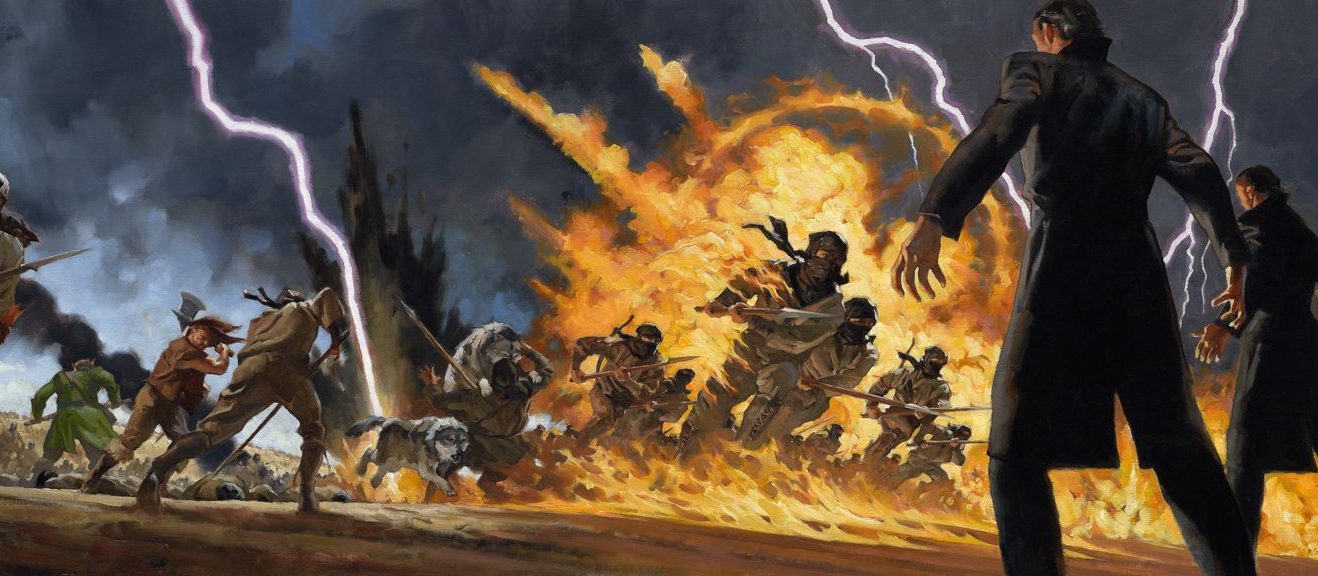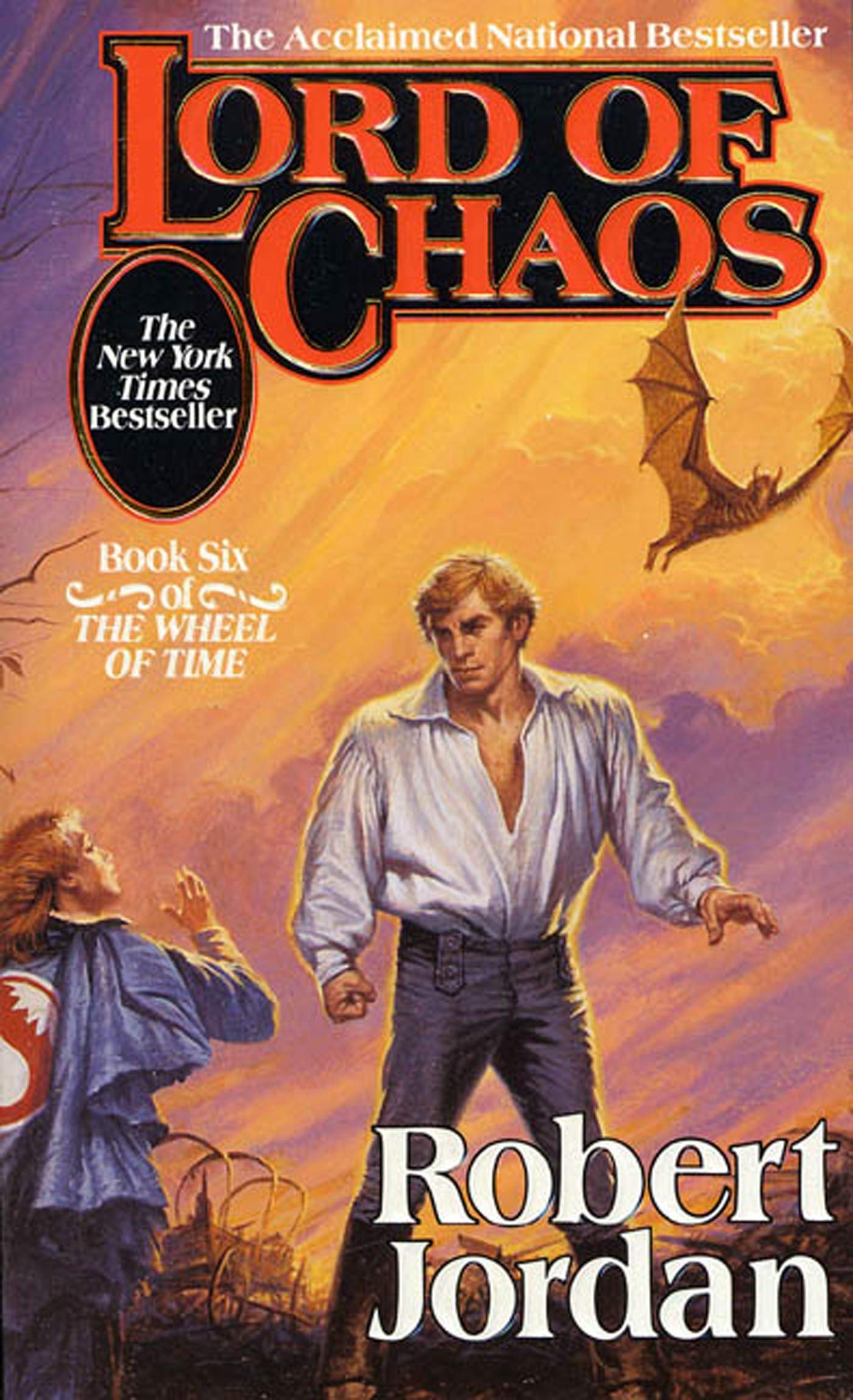

“Almost dead yesterday, maybe dead tomorrow, but alive, gloriously alive, today.”
There are a number of different approaches to writing a novel, but surely everyone who has tried has realized that at some point large portions of labored-over text will have to be excised and left on the cutting room floor. It’s unavoidable if you want to achieve an exciting narrative pace with a graceful flow. This is especially true for fantasy writers who are creating worlds that differ from our own. I recall an epiphany that came to me while blazing through the weeds of my own story (which may or may not ever see the light of day). After writing nearly a dozen pages to set up a scene, I realized that all of it was crucial to my understanding of how the scene should work, but that only about 10% of it belonged on the page for the reader. It was a mind blowing moment, to grasp this idea of allowing things to go unexplained, leaving things implied, and letting the reader use their imagination. Only the essentials and some flavorful frayed threads needed to be left to engage the reader. Since I had put in the time of fleshing out the behind-the-scenes, the reader would in turn sense that depth, even though it did not appear in front of them. Of course, most all my favorite authors did this, I just had never put my finger on it in that way before.
So now imagine that you wish to write a novel in this way, but literally everything that you write is absolutely golden and cannot under any circumstances be removed from the manuscript lest the whole thing crumble to pieces. This is the way that Robert Jordan writes, only, Robert Jordan is a mediocre writer. So forget the “golden” thing, that’s just how he thinks of himself, it seems. I have no doubt that when he wrote a scene, it was very important to him to visualize the material of the characters’ clothing, which combination of colors it was, and how low the necklines. I am sure that the temperature of the drinks and the height of the sun on the horizon and the shapes of people’s noses helped him to conjure up the scene and place himself within it. Clearly, literary characters must function inside of a fictionalized world along with other living, breathing characters with their own histories if one is to bring that world to life.
All of those things can be important to “get in the zone,” but they rarely deserve to be given prominence in storytelling. And yet, Jordan is so fixated on them that he can barely manage to tell his story! If I’m being cynical—which I’m wont to do—I’d accuse Jordan of aiming for a word count. I’ve gone down this path before, considering that maybe he wanted his books to be thick so that they would qualify as “epic fantasy,” or that he was mercenarily pumping out dross for cash. Whatever his motives, it is clear that his interests and abilities did not align with even the most basic of storytelling functions. At this point in the series the characters are stagnant—repeating the same conversations, experiencing the same emotions, dealing with the same conflicts as they have been since probably The Great Hunt (book #2). This is where the author has chosen to devote his words and effort, yet he has done little with all of his rambling.
To be clear, I like a lot of books with little to no character development. Those books tend to have other redeeming qualities, though. Like an interesting world. Or weighty ideas. A plot, too, is something Jordan seems reluctant to engage in. As far as I can tell, across the hundreds and hundreds of pages of Lord of Chaos, this is the extent of what happens: the Dark One causes global warming; Rand al’Thor begins training men who can channel; Lews Therin begins talking to Rand in his mind (this is annoying, but important); the split Aes Sedai factions each seek to control Rand; Nynaeve and Egwene ascend the ranks of the “good” Aes Sedai; Perrin returns to Rand; Rand is kidnapped and a battle ensues.
These important narrative developments are obscured by a bunch of horrendously puffed-up nothingness—political scheming that goes nowhere, attempted romances with cardboard cutout characters that I can barely even remember the names of, the tired old “ugh, men!”/“ugh, women!” internal monologues, petty disdain for no other purpose than the author can’t comprehend any other mode for human interaction. Almost all of Jordan’s writing attributes are sorely lacking, his only reliable trick is to not utilize any one of his methods for too long at a time. That’s how we end up with these weird amalgamated conversations that comprise the bulk of the book, wherein one line of dialogue will be said for each two paragraphs detailing the history of a town, disgust at a woman’s low neckline, or the hue and stitch quality of a man’s fine linen shirt. At least when I grow exasperated of Jordan’s expository longwindedness, I sometimes don’t realize just how poor he is at writing dialogue. He’s sneaky like that.
There are some readers who thoroughly enjoyed the initial books in the series (I am not one of them) and found that the series went downhill around this point. I agree that it has gone downhill, but posit that it wasn’t at the top of it to start with. So you can imagine how thoroughly I am enjoying the torture of slogging through it (I’m essentially hate reading at this point). While many of Jordan’s issues were evident from the first half of the first book, there does seem to be something else that has derailed the series entirely. I’ve touched on it before, even earlier in this review, but I think what has brought the momentum of the series to a screeching halt is Jordan’s insistence on putting his female characters front and center—which forces him to write from a perspective that he is basically incapable of doing (not that he’s great at males POVs either)—and the fact that all of his female characters have the same exact personality. No matter if they’re from a small village that’s not even on modern maps, the royal heir, Aes Sedai, innkeepers, Darkfriends, Forsaken, stilled channelers, mythical legends come to life—they’re all bossy, self-centered, egotistic, conceited, patronizing, etc. When you consider this fact, along with his insistence on repeating the same petty conversations over and over, you can see how someone coming in expecting epic fantasy involving magic and swords and the ultimate fight against evil would be a little let down.
But somehow legions of fans have not realized that Jordan’s managed to stretch a book and a half worth of plot into six massively bloated tomes, nor that he has done so by writing C-grade high school romance novels. This is not an epic fantasy, unless we’re talking about Jordan’s fantasy of himself being a good writer. At this point, I’m rooting hard for the Dark One to put us all out of our misery.